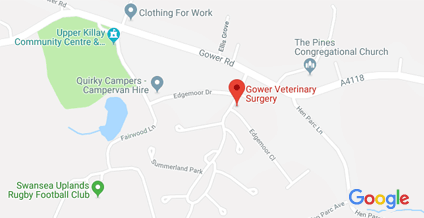Our Pet Health for Life Plan is a great way to spread the cost and save on your pet’s routine healthcare. You will receive all the essential treatments to keep your dog free from ticks, fleas and worms alongside routine checks which keeps your dog in the best possible health and helps them lead happier lives.
We are open for emergenices only 9am-12pm on bank holiday Monday. Please click here to view the latest information on how to access our services.
Dogs are at risk of contracting parasites as they are ever-present in our environment, but you can keep your pet safe by regularly providing them with tick, flea and worm treatment.
All year-round flea, tick and worming treatment is just one of the many benefits of joining our Pet Health for Life Plan.
Ticks in Dogs
Ticks are related to spiders and have eight legs. There are several different tick species, and they vary in size from about 1mm to 1cm long. As they feed on your dog’s blood, they swell and become more obvious to see. They are common in grasslands and woodlands but can also be found in domestic gardens. They are in all areas of the United Kingdom.
You are most likely to come across ticks during the spring and autumn seasons, but they are active throughout the year. Unlike many other parasites, ticks do not fly or jump but climb or drop onto your dog's coat when they enter their habitat, especially in the long grass. Once on your dog, they screw themselves into the skin and feed on blood.
Ticks can irritate your dog and spread microbes that cause diseases such as Lyme disease and the potential for other diseases more prevalant in Europe As a dog owner, it is good to use a tick treatment to either repel ticks or neutralise them. Tablets, spot-on treatments and collars are available to help fight ticks, and it is best to consult your vet about which is most suitable for your pet.
Book a flea and worm treatment appointment
Fleas in Dogs
Fleas are small, dark brown insects that are prevalent across the United Kingdom. Fleas on dogs are more than just a summer problem as they can survive and bother your pet all year-round.
Dogs typically get infested with fleas through contact with other animals or fleas in their environment. This insect's robust back legs enable it to jump from a host or the surrounding environment onto your dog.
Fleas will make your pet uncomfortable and itchy; they can also pose a profoundly serious health risk. Severe flea infestations can cause anaemia due to blood loss caused by the parasites, and it can be fatal to puppies or immunocompromised dogs. Don't forget fleas feed on people too, and a flea infestation can easily get into your home.
There are numerous flea treatments on the market which provide year-round prevention. It is best to consult your vet to find the safest, most effective and most sustainable product for your dog. Spot on treatments and medication in tablets and injections are the preferred long-term flea control methods. Some products attack adult fleas, while others work by interrupting flea development – and some newer products on the market do both!
Book a flea and worm treatment appointment
Worms in Dogs: Lungworm, Roundworm & Tapeworm
The thought of worms in our canine friends can be very unpleasant and some of them can also be a risk to children and adults. However, understanding prevention options for worms in dogs is an integral part of responsible dog ownership.
Every dog is at risk for worms, no matter where they live or how much time they spend outside. There are three types of worms we worry about – roundworms, tapeworms and lungworms. Worms are usually transmitted through the faecal-oral method. That means that your pet may have come across microscopic parasitic eggs that are present in faecal material. Some worms, such as tapeworms, are transmitted via fleas. The parasite lives inside the flea, so when a dog accidentally eats fleas, they become infected. Some tapeworms can be transmitted when a dog eats raw meat.
For most dogs, it is recommended to take some type of worm prevention year-round. Your vet will let you know what the best product is, based on the worms found in your part of the United Kingdom, and your dog's lifestyle.
Lungworm Advice for Dog Owners
Lungworm is a potentially serious and sometimes fatal condition that affects dogs. At Gower Vets, we urge dog owners to be aware of the signs of lungworm and to take steps to prevent this infection.
Lungworm is caused by a parasitic worm that resides in the heart and lungs of dogs. The infection can be caught after the ingestion of slugs, snails, or frogs carrying the larvae of the lungworm, and is more common in dogs that spend a lot of time outdoors.
The early signs of lungworm in dogs can be subtle and may be overlooked or mistaken for other conditions. These signs can include coughing, breathing difficulties, reduced appetite, weight loss and lethargy. If you notice any of these symptoms in your dog or suspect a lungworm infection, seek veterinary advice immediately.
Treatment of lungworm usually involves medications that are designed to kill the worms and reduce the inflammation and damage in the lungs. In some cases, dogs may need to be hospitalized for supportive care.
To help prevent lungworm infection, we recommend the following tips:
- Minimise your dog's exposure to snails, slugs and frogs.
- Clean your dog's water bowl regularly and avoid letting them drink from puddles or other outdoor water sources.
- Consider using a monthly preventative treatment that protects against lungworm.
- Regularly deworm your dog according to your vet's advice.
By following these tips and seeking prompt veterinary care if you suspect your dog has lungworm, you can help keep your furry friend healthy and happy.
Spread the Cost of Parasite Prevention With Pet Health for Life

Lungworm FAQs
What are the signs of lungworm in dogs?
Lungworm in dogs is a parasitic infection that can cause a range of symptoms. The signs of lungworm can vary depending on the severity of the infection, the age and health of the dog, and other factors. Here are some of the common signs of lungworm in dogs:
- Coughing - this is one of the most common signs of lungworm infection in dogs. The cough may be persistent and can sometimes be accompanied by phlegm or blood.
- Breathing difficulties - lungworm can cause breathing difficulties, including shortness of breath and wheezing.
- Decreased appetite - dogs with lungworm may show a decreased appetite and a general lack of interest in food.
- Weight loss - if the lungworm infection is severe, the dog may begin to lose weight rapidly.
- Lethargy - dogs with lungworm may show a lack of energy and interest in exercise or play.
- Vomiting - in some cases, lungworm infection can cause dogs to vomit.
- Changes in behaviour - dogs with lungworm may exhibit changes in behaviour, such as restlessness, agitation, or depression.
If you suspect that your dog may have lungworm, it is important to take them to see your vet as soon as possible. Lungworm can be a serious and potentially life-threatening condition, but it can be successfully treated if caught early.
How do dogs get lungworm?
Dogs can get lungworm by ingesting snails, slugs or frogs infected with lungworm larvae. This can happen when dogs accidentally eat these creatures, drink contaminated water or eat grass that has come into contact with infected snails or slugs. Lungworm infection is more common in dogs that spend a lot of time outdoors. Preventive measures include avoiding contact with snails and slugs, providing clean drinking water and regular deworming.
Can a dog recover from lungworm?
Yes, with appropriate treatment, dogs can recover from lungworm. Treatment usually involves medication to kill the worms and supportive care. Early diagnosis and treatment are crucial for a successful recovery. Preventative measures, such as regular deworming and minimising exposure to snails and slugs, can also help to reduce the risk of lungworm infection.
What are the first signs of lungworm in dogs?
The first signs of lungworm in dogs can include coughing, difficulty breathing, reduced appetite, weight loss and lethargy. If you notice any of these symptoms or suspect a lungworm infection, it is important to seek veterinary advice immediately for prompt diagnosis and treatment.
How quickly does lungworm take to develop?
The time it takes for lungworm to develop in a dog can vary depending on several factors, including the dog's age, immune system and the severity of the infection. In general, it can take anywhere from a few weeks to several months for a dog to develop symptoms of lungworm after being infected with the parasite. However, some dogs may not show any symptoms at all, making it difficult to know if they have been infected. If you suspect that your dog may have been exposed to lungworm, it is important to speak to your vet and have your dog tested for the parasite to ensure prompt diagnosis and treatment if necessary.
*Source: My Pet and I, March 2023
Your feline friend can be at risk of contracting parasites all year round with them being ever-present in our environment. However, regularly providing them with tick, flea and worm treatment is the best way to protect them, your home and yourselves from infestation.
All year-round flea, tick and worming treatment is just one of the many benefits of joining our Pet Health for Life Plan.
Ticks in cats
Ticks are 8-legged creatures related to spiders and are most commonly found in long grass and woodlands. Ticks can be harmful to cats as they can transmit disease and can be locally irritating. Although you are most likely to come across ticks during the spring and autumn seasons, they are active throughout the year.
Ticks will attach themselves to your cat as they pass by, jumping from the foliage and climbing up their legs. Once attached, they remain there for five days, drinking your cat’s blood. Ticks are visible with the naked eye but can be hard to spot amongst the fur. They prefer to attach around the head and ears.
As the well-known saying goes, ‘prevention is better than cure’, and there are various products available to help treat your cat to prevent them from becoming infested by ticks. We can recommend the best product for your pet. If your cat has a tick, then contact us to arrange an appointment to remove it, as if they are not removed correctly the mouthparts of the tick can remain in the skin leading to infection.
Book a flea and worm treatment appointment
Fleas in cats
Fleas are small, dark brown insects that are found year-round across the United Kingdom and are the most prevalent skin parasite found in cats.
Cats typically get infested with fleas through contact with other animals or from their environment. A house with central heating and fitted carpets creates a warm and humid condition that is perfect for fleas to flourish. Fleas feed on blood and then lay eggs. One flea can lay up to 50 eggs a day which fall off wherever your cat goes. The eggs hatch into larvae which live in dark recesses of your home. Eventually, the larvae spin a cocoon which can be present in the environment for as long as two years, waiting for the right signals to hatch into an adult flea, when the whole cycle starts again.
Fleas are likely to make your cat uncomfortable and itchy, and you may notice they have inflamed skin or small scabs at the base of their tails or around their necks. Flea infestations can cause anaemia due to blood loss caused by the parasites, which can be especially dangerous in kittens. Fleas also don’t mind who they bite and will commonly feed on you and your family.
There are numerous flea treatments on the market which provide year-round prevention. It is best to contact us to find out what we can offer and recommend. Spot on treatments and medication in tablets and injections are the preferred long-term flea control methods. Some products attack adult fleas, while others work by interrupting fleas' development – and some newer products on the market do both! Products intended for treating fleas in the home must not be used on cats as they can be toxic.
Treating your cat will only go part way to controlling any flea infestation – it is also crucial to ensure that they are killed and removed from the environment to prevent reinfestation.
Book a flea and worm treatment appointment
Worms in cats: tapeworm and roundworm
The thought of worms in your beloved cat can be very unpleasant. However, understanding prevention options for worms in cats is an integral part of responsible pet ownership.
There are two types of internal parasites that are commonly found in the gut of cats – tapeworms and roundworms.
Tapeworms are flat, tape-like worms that attach to the wall of the gut. Your cat may become infected with tapeworm if they were to ingest something that was a host for the tapeworm eggs, such as a flea or rodent. As fleas can transmit tapeworm, if your cat shows signs of having fleas, then there is a good chance they have tapeworm too.
Roundworms live in the intestine of your cat and are more resembling of an earthworm. Like tapeworms, their eggs are passed in the faeces and although not infectious straight away after being passed, they will be after only a couple of days and remain infectious for years! It is also common for roundworms to be passed on from a mother to her kittens through the milk.
Although not fatal, the presence of worms in cats can lead to symptoms such as weight loss, irritation and diarrhoea.
For most cats, it is recommended to take year-round worm prevention. We can advise you on the best product based on the type of worm found and your cat's lifestyle.
Parasite prevention for indoor cats: Do they need flea and worm treatment?
Many people believe that indoor cats do not need parasite prevention, but the reality is that indoor cats are still at risk of certain parasites, including fleas and worms. Here's what you need to know about parasite prevention for indoor cats.
Indoor cats can still be at risk of fleas and worms, so it is important to use preventative products to protect them. Fleas can be carried inside on clothes or other pets and can cause discomfort and health problems for cats. Worms can be transmitted through contact with contaminated faeces or by ingesting insects. Common worms that affect cats include roundworms, hookworms and tapeworms, which can cause a range of health problems. In addition to using preventative products, keeping your cat's environment clean is also important to reduce the risk of infestations.
Spread the Cost of Parasite Prevention With Pet Health for Life

Our Pet Health for Life Plan is a great way to spread the cost and save on your pet’s routine healthcare. You will receive all the essential treatments to keep your cat free from ticks, fleas, worms and ear mites alongside routine checks which keeps your cat in the best possible health and helps them lead happier lives.
Saltwater Poisoning in Dogs Swansea
Signs, Symptoms, & How to Treat Seawater Poisoning

What is Saltwater Poisoning in Dogs?
Swansea, and South Wales in general, is full of amazing beaches that are ideal for a long walk, or even a swim when the weather permits. Our dogs know this just as much as we do. Seaside visits are a fantastic place for fun and enrichment. The coast is full of rock pools with unusual smells, long beaches to stretch their legs on, other dogs to socialise with, and not to mention ocean swimming opportunities.
Beaches do, however, present a few unique dangers to our furry friends. Saltwater poisoning can be a common issue for dog owners who frequently take their pooch to the beach. The major issue for dogs who drink seawater is the high levels of sodium in the water. As your dog gets hot and dehydrated from all their rigorous exercise at the beach, they become more likely to drink from the main water source available to them. Unfortunately, the salt in seawater will dehydrate your dog further, causing them to drink more and inevitably raising the sodium levels in its body.
Why are High Sodium Levels an Issue?
In general, a few sips can be fine and often will not cause any issues for your dog. It is when they drink significant amounts of seawater that it becomes an issue, and you may need to act quickly to prevent any serious harm.
Salt is a natural and healthy part of a dog’s diet. Too much salt, however, will cause your dog’s body to try and correct the imbalance in their blood. The blood cells in their body release the water stored to even out the high salt levels in the blood. When left untreated, your dog will become dizzy, confused, and more lethargic than normal. Saltwater poisoning can also cause their muscles to stiffen as they lose moisture, causing the dog to walk strangely or begin shaking.
Saltwater Poisoning Symptoms in Dogs
Dogs are very boisterous and active when they play at the beach. It can, therefore, be difficult to constantly supervise your dog when they are in and out of the sea. Even the most vigilant dog owner can miss their dog taking a quick drink break.
One of your best chances of preventing serious harm to your dog is to arm yourself with the signs and symptoms of seawater poisoning.
The most common signs and symptoms of saltwater poisoning in dogs present relatively fast. These include:
- Extreme Thirst/ Dehydration
- Excessive Urination
- Lethargy and Confusion
- Nausea/Vomiting
- Diarrhoea
- Muscle Spasms/Tremors
- Seizures
Extreme cases of saltwater poisoning can be potentially fatal for dogs. If left untreated these symptoms can develop into kidney and brain damage which can be serious, not to mention costly, problems.
Don’t allow yourself to get caught out with an easily preventable and treatable issue. Swansea is a coastal city, and knowledge of seawater poisoning can be key to keeping your dog safe and healthy.
What Can I do if I Think My Dog Has Salt Poisoning?
If you suspect your dog has drunk a lot of seawater, do not hesitate to contact your vet’s practice immediately. They will be able to support you over the phone even if you do not need to go into the practice.
There are a few things you can do if your dog starts to present with vomiting or diarrhoea:
- Firstly, give them a break from the water and/or the beach.
- Finding a calm, relaxed, and sheltered space for them to rest can give them chance to recover whilst being monitored.
- Offer them sips of clean, fresh water approximately every 30 minutes. This will allow them to replenish their fluids without upsetting their stomach further.
- Monitor them for the next 24-48 hours. Most dogs will recover after drinking seawater. When they have persistent vomiting and diarrhoea, or their condition seems to get worse we recommend getting in touch with your vet as soon as possible.
How do I Prevent Sea Water Poisoning Next Time?
Preparation is the best way to minimise the risks of seawater poisoning for your dog.
- Plan your trip early. Bring along the canine essentials to every beach trip, such as poo bags, treats, fresh drinking water, and even an umbrella to ensure they have shade from the hot sun.
- Ensure your dog has regular breaks to drink fresh, clean water. They will be less inclined to drink seawater if they are already hydrated.
- Keep your vet’s emergency contact number to hand. Time is not your friend in poisoning cases. Reduce the amount of time wasted before your dog gets help by keeping their number saved and ready on your phone.
- Reduce their ocean time if they cannot stop themselves from drinking seawater.
- Similarly, if they are known to drink saltwater whilst in the sea, you could keep them on a leash. Rather than allowing your dog free reign of the beach, you can buy extendable leashes. Extendable leads give your dog some freedom, whilst allowing you to remain in control of them.
At Gower Vets, our emergency services are well-equipped to handle a wide range of emergencies. Our main practice is only a 10-minute drive from Swansea Beach. Whilst our out-of-hours surgery is only a 20-minute drive from both Swansea Beach and Aberavon Beach. Join us today to discover the wide variety of services that our practise can offer you!
Need More Support?
For more information about saltwater poisoning, or your pet’s health, contact us here to speak to our team of experts.
If you’re unable to make your scheduled appointment time for any reason, please advise us at your earliest convenience. This will allow us to see other pets who may need our help.
Any cancellation/amendment within three hours of your scheduled appointment will need to be made by calling us.
Should you have any problems or need to contact us, please call us during working hours.
Did you know that you can spread the cost of routine care for your pet with our Pet Health for Life plan?

Why not join up to our Pet Health for Life plan to spread the cost of essential healthcare for your pet and discounts on services. Our plan is an affordable way to keep your pet happy and healthy with treatments included such as flea and worm, vaccinations, microchipping, nail clipping and anal gland expression.
You also get 2 consults with a vet and 2 consults with a nurse included in our plan!*
Find out more on how you can save TODAY!
*Terms of service apply
We’re pleased to be able to offer online appointment booking at Gower Vets in Swansea.
Simply choose the appointment description that best matches your needs. A list of available dates and times will then be shown.
Once you have booked an appointment you will receive a confirmation email.
You will also receive a reminder by text prior to your appointment.
Book an appointment online below. If you have an emergency please call us on 01792 299111.
Page 3 of 8
-
Veterinary Surgeon
Location: 68-31 Edgemoor Close, Upper Killay, SwanseaHours: Full timePractice: Gower Veterinary SurgerySalary: £60,000 per annum, £4,000 welcome bonus, Salary up to and dependent on experienceRead more




